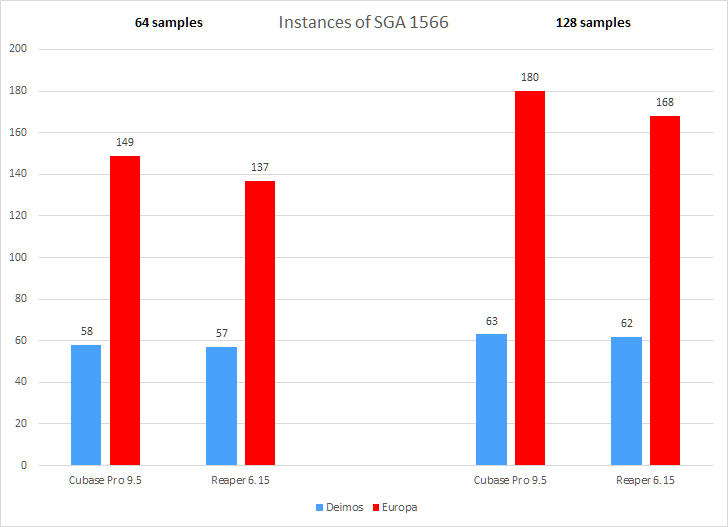tl,dr: Works great, see the comparison
The AMD Renoir laptop chips have been out for a while now and have fantastic benchmarks for most workloads, beating many desktop CPUs at a much lower power draw.
Conventional benchmarks aren't helpful in predicting DAW performance
Real-time audio production is a specialized workload and has constraints that gaming and 3D rendering don't share. For example, the 1xxx and 2xxx Ryzen CPUs were great in most workloads but were beaten by Intel because of cross-core latency.
This was fixed in the 3xxx CPUs because of architectural changes and there are many videos of happy Ryzen3 DAW users.
Renoir should also be good
From what I understand, Renoir CPUs use a monolithic design that should make them even better suited to audio since cross-core latency is lower than their desktop counterparts. The Anandtech article linked above has a comparison of CC latency between the desktop 3950X and 4900HS, and the worst-case latency has reduced from 118 ns to 69 ns!
How does this translate to real-world performance?
Well... in my experience, excellently.

My setup and comparison
My current studio machine, and baseline for comparison, is a quiet desktop:
Deimos i7 4770k @stock (4C/8T) HD4600 graphics 32 GiB RAM @ 1600 MHz (quad-channel)
I bought an HP Omen 15 with a Renoir CPU:
Europa HP Omen 15 (8C/16T) Ryzen 4800H 1650Ti 8 GiB @ 3200 MHz (single-channel)
I've since upgraded to 64 GiB dual-channel RAM, but these benchmarks are with the stock 8 GiB that came with the machine, comments on this later.
Both systems were connected to the same Soundcraft UI24R, set to a 'Performance' power-profile, and drivers were set to 'minimum latency'. I usually work in 48 kHz, 24-bit.
Here's a quick chart of what I got with DAWbench with a 64 sample buffer and 128 sample buffer:
The 4800h scores roughly 3 times as much as a high-end desktop CPU from 7 years ago. Granted, the effective thread-count is twice as high, but this is a more-than-proportional increase, and in a laptop chip.
My previous upgrade was from the i7 2600 to the 4770k, and honestly, I was underwhelmed. But this time it's a very noticeable upgrade, and better value as well.
Considerations
RAM upgrade: I upgraded RAM to a max of 64 GiB. Some spec sheets say the 4800h only supports 32 GiB, but 64 worked fine for me.
This is the RAM I bought. Make sure you're using JEDEC compliant RAM @1.2V, and make sure it's 3200 MHz.
Ryzen is memory-sensitive and likes dual-channel, fast, RAM in general. I haven't re-run the benchmarks after the dual-channel upgrade so I can't quantify this, but I'll try to update this post when I do.
Noise and workarounds
Of course the laptop is much noiser than a desktop with a silent cabinet, but this is not a problem while composing, only while recording.
My interface can record without a computer connected, and I'm using that for recordings that demand absolute silence.
If you're on a budget and need a quiet room for recordings you could connect a mobile device to your interface, most are now class-compliant.
 [
[